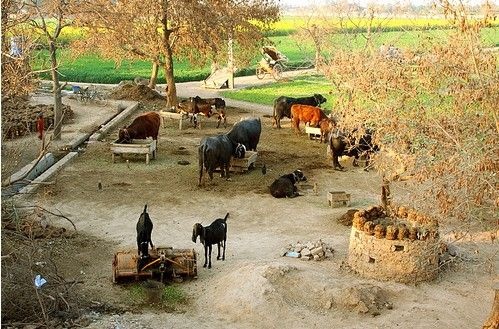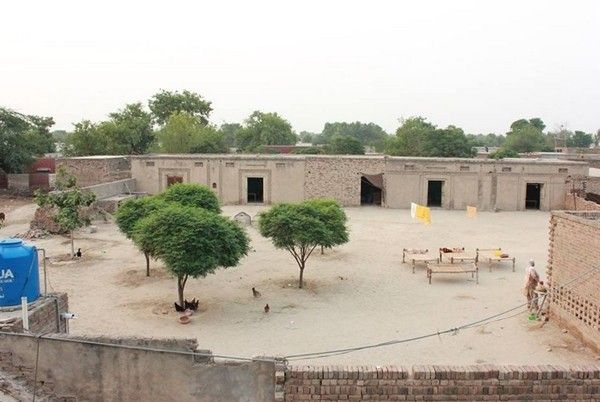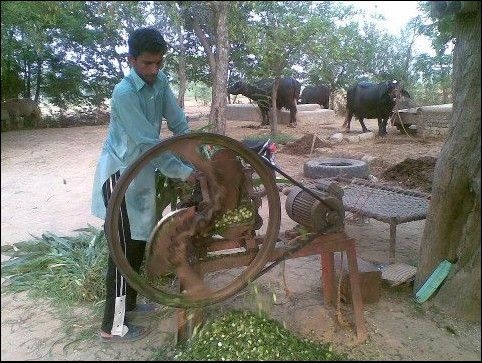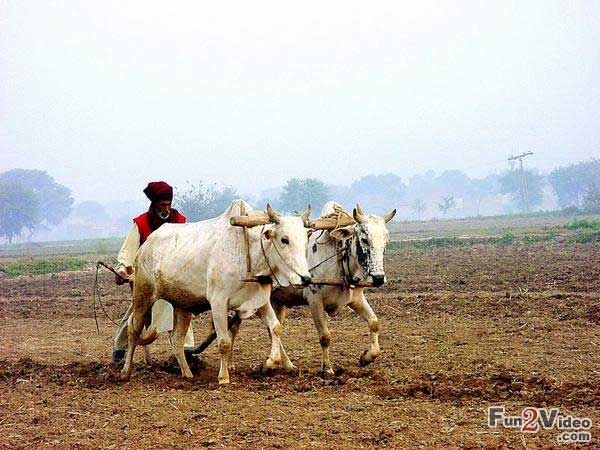
Pakistan is a land of villages. Eighty five persons of our population live in villages. Life in the typical Pakistani villages is monotonous. There is no activity as compared with the hustle and bustle of the town. Everyone seems to be doing everything in a peaceful and leisurely manner. There is no rush of traffic, no hurrying of bicycles and motor cars. There are no grand buildings to attract the people.

The whole of the village consists of mud-built houses. The only buildings worth the name are the villages, mosque, the village school, the residence of Patwari and the office of the Union council. There are no arrangements for drainage. Dirty water stands here and there in pits and breeds mosquitoes. The village pond or well is another place of importance. Here the village urchins bath; women wash their closes; and animals quench their thirst. A typical Pakistani village has two or three provision shops where ordinary necessaries are stocked.

The people in a typical Pakistani villages lead a simple and hard life. They are honest, innocent and extremely homely. They are religious minded. Most of them say their prayers regularly. They are superstitious too and put their faith in silly superstitions. Peers, fakirs and darveshes have a strong hold on their lives. They dress themselves in homespun cloth. Their women too put on coarse and rough fabrics. The main profession in the village is agriculture. The peasant gets up very early in the morning and goes to work in his field. He ploughs the land till about twelve when his wife brings his lunch. After that he takes rest for a while. He gets up at two or three and works till sunset. The happiest people in the village are the children. They have a vast playground to play. Usually, there is a sense of fellowship among all. The village school master is held in great esteem on account of his learning.




